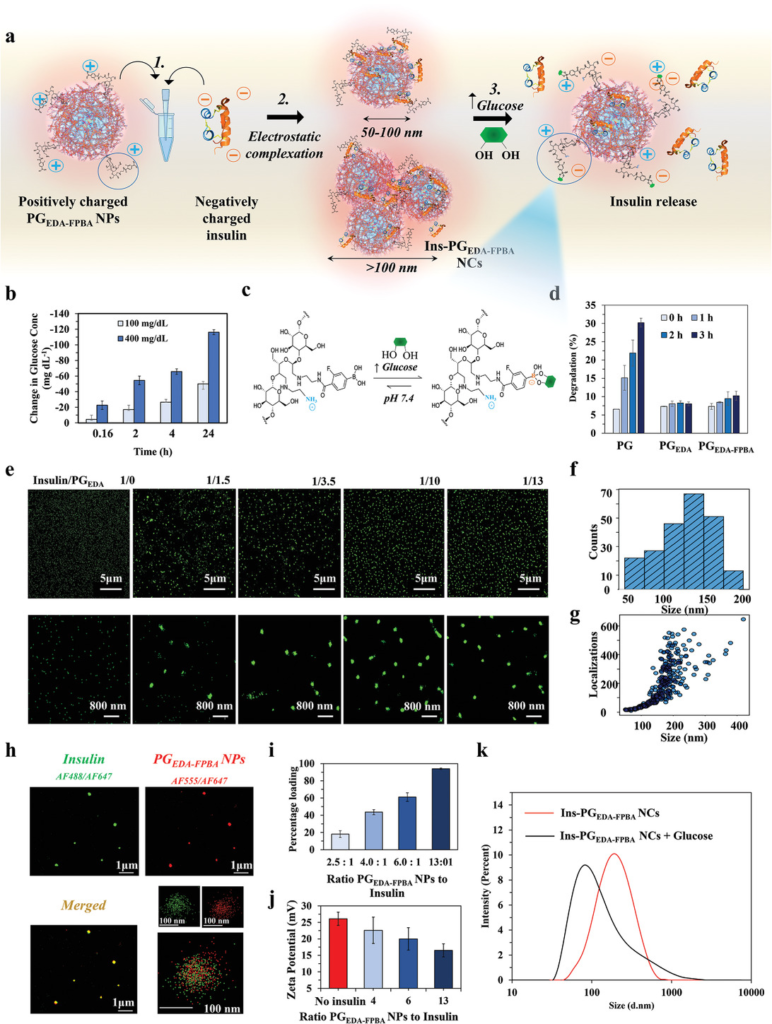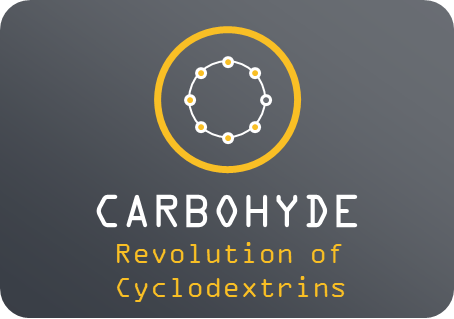Glucose-responsive insulin-delivery platforms sensitive to dynamic glucose concentration fluctuations and providing both rapid and prolonged insulin release have great potential to control hyperglycemia and avoid hypoglycemia diabetes. RMIT University and Monash University present biodegradable and charge-switchable phytoglycogen nanoparticles capable of glucose-stimulated insulin release. The nanoparticles are “nanosugars” bearing glucose-sensitive phenylboronic acid groups and amine moieties that allow effective complexation with insulin (≈95% loading capacity) to form nano complexes. A single subcutaneous injection of nano complexes shows a rapid and efficient response to a glucose challenge in two distinct diabetic mouse models, this results in optimal blood glucose levels for up to 13 h. The nano complexes’ morphology is key to controlling rapid and extended glucose-regulated insulin delivery in vivo. These studies reveal that the injected nano complexes enabled efficient insulin release in the mouse, with optimal bioavailability, pharmacokinetics, and safety profiles. These results highlight a promising strategy for the development of a glucose-responsive insulin delivery system based on natural and biodegradable nano sugar.
Rong XU, Sukhvir Kaur Bhangu, Karly Sourris, Domitilla Vanni, Marc-Antoine Sani, Karen Alt, Be’eri Niego, Dr. Quinn A. Besford, Brendan Dyett, Irena (Iśka) Carmichael, Mark Cooper, Christoph Hagemeyer, Francesca Cavalieri, et al
See the full article here: An Engineered Nanosugar Enables Rapid and Sustained Glucose-Responsive Insulin Delivery in Diabetic Mice

